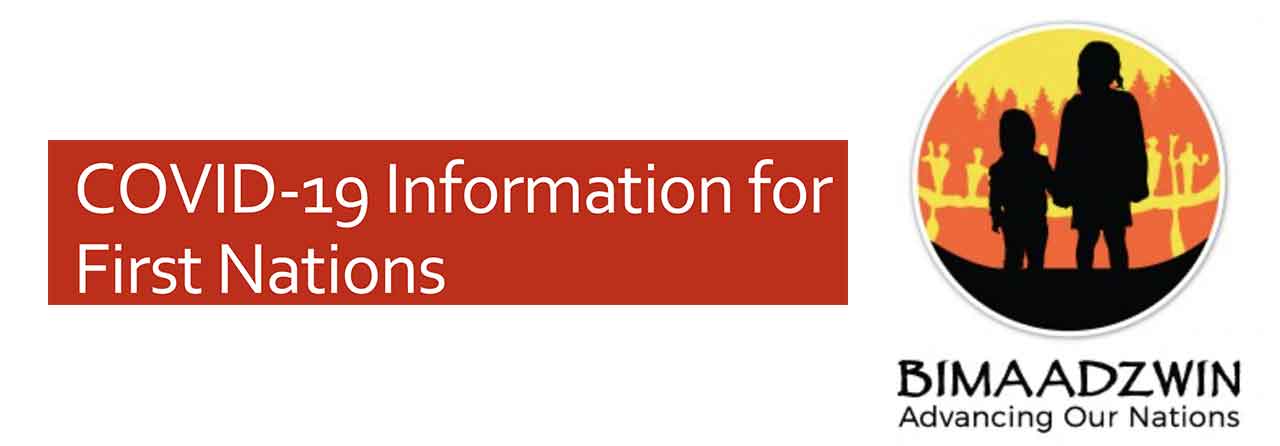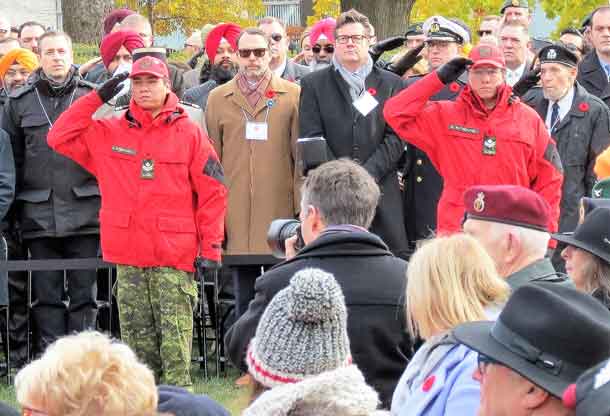
OTTAWA – “We have taken immediate, significant and decisive action to First Nations, Inuit and Métis in preparing for and addressing needs related to COVID-19. These measures are the product of vital discussions with Indigenous leaders and communities across Canada. This new Indigenous Community Support Fund will further support First Nations, Inuit and Métis leaders in taking action to address the evolving needs of their population and in making their own decisions about where critical support is needed to quickly address this public health emergency,” says Marc Miller, Minister of Indigenous Services.
Miller assures Indigenous Canadians his department “is working fast with quick turnaround times for processing personal protective equipment requests to ensure First Nation communities are ready to respond to COVID-19 as effectively as possible”.
Indigenous Services Canada in a media statement reports, “The health, safety, and well-being of all people in Canada, including First Nations, Inuit, and Métis, is and will remain a top priority for all. Canada recognizes that First Nation, Inuit, and Métis are among the most vulnerable and that during this crisis, in particular, those in remote and fly-in only parts of the country are uniquely vulnerable. Communities are incredibly resilient and full of solutions and innovative ideas. This is why we must support distinctions-based measures to improve public health response for Indigenous communities and provide them with the flexibility they need to address the specific needs identified by communities and their members.”
Marc Miller, Minister of Indigenous Services outlined the details of the $305 million for the new distinctions-based Indigenous Community Support Fund, to address immediate needs in First Nations, Inuit, and Métis Nation communities related to COVID-19.
The Indigenous Community Support Fund will be distributed as follows:
- $215 million for First Nations: allocated to each First Nation based on population, remoteness and community well-being;
- $45 million for Inuit, which will flow to each of the four land claims organizations through an allocation determined by the Inuit Tapiriit Kanatami and regional Inuit land claims organizations;
- $30 million for Métis Nation communities, which will flow through each of the Governing Members;
- $15 million for regional and urban Indigenous organizations supporting their members living away from their communities, and to regional organizations such as Friendship Centres and the Métis Settlements General Council of Alberta.
These new funds will flow directly to Indigenous communities and groups across the country and will provide Indigenous leadership with the flexibility needed to address the immediate needs in their communities as they prepare for and react to the spread of COVID-19. These funds could be used for measures including, but not limited to:
- support for Elders and vulnerable community members,
- measures to address food insecurity,
- educational and other support for children,
- mental health assistance and emergency response services,
- preparedness measures to prevent the spread of COVID-19.
The Fund is in addition to the needs-based funding designated for First Nations, Inuit and Metis through the COVID-19 Response Fund announced on March 11, 2020, and to the initial $50 million provided to support the immediate public health response. To support women and children fleeing violence, we have also created a $10 million fund for emergency family violence prevention shelters on reserve and in Yukon, as announced by Prime Minister Justin Trudeau on March 18, 2020.
The Indigenous Community Support Fund is also in addition to needs-based support to address public health issues, including the provision of personal protective equipment, testing, and health care personnel. It is also in addition to needs-based funding to address the growth in demand for income assistance and for emergency planning programming.
First Nations, Inuit, and Métis will also benefit from all of the government’s efforts to support and improve the health response to COVID-19, and to reduce the impact of the situation on workers and businesses. The Government of Canada recognizes more support may be needed and will continue to offer financial support for Indigenous communities to meet their evolving needs.
“The Government of Canada is supporting Indigenous communities to put measures in place needed to prepare for and respond to COVID-19. We are working to ensure communities have access to needs-based resources, open communications, personal protective equipment, and other medical supplies to strengthen communities’ resilience to this virus,” says Dr. Tom Wong, Chief Medical Officer of Public Health for Indigenous Services Canada.
Quick facts
- More information on how the Indigenous Community Support Fund will be distributed is available at canada.ca/coronavirus-info-indigenous.
- Indigenous people and businesses are encouraged to review other measures that have been made available through the Government of Canada’s COVID-19 Economic Response Plan, through which they may receive further support.
- As a reminder, the best way to mitigate the risks associated with COVID-19 is to practice social distancing and frequent hand hygiene and coughing and sneezing etiquette. Clean and disinfect frequently touched objects and surfaces, such as toys and door handles.
- Indigenous Services Canada is working fast with quick turnaround times for processing personal protective equipment requests to ensure First Nation communities are ready to respond to COVID-19 as effectively as possible.
- As of March 25, 2020, Indigenous Services Canada has shipped or delivered 170 personal protective equipment requests with 32 in progress.







